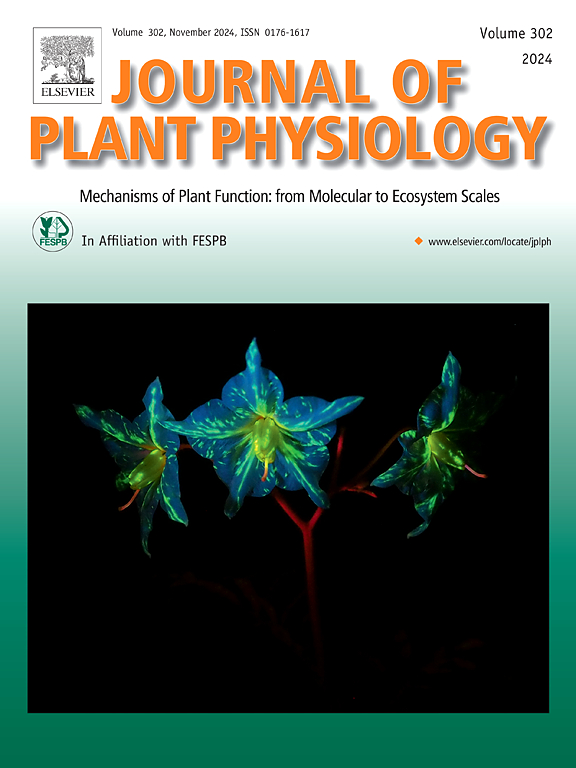Wisdom comes after facts – An update on plants priming using phytohormones
IF 4
3区 生物学
Q1 PLANT SCIENCES
引用次数: 0
Abstract
Currently, agriculture is facing the threat of climate change. Adaptation of plants to unfavorable growth conditions is undoubtedly a great challenge for scientists. A promising solution to this problem is priming, for which chemicals, microorganisms and phytohormones can be used. The use of priming not only affects the adaptation of plants to unfavorable environmental conditions caused by water deficiency, low temperatures, heat and soil pollution, but can also improve the quantity and quality of biomass. In this review, we focus on the role of plant phytohormones in inducing priming in crop plants. We took a closer look at hormones such as abscisic acid, salicylic acid, jasmonic acid and gibberellins. We focused not only on their physiological and morphological effects, but also on what changes at the molecular level are induced by priming with phytohormones. An interesting aspect of priming is the epigenetic changes induced by phytohormones, which influence better adaptation to unfavorable conditions, which is why we addressed this topic in this review.
智慧来自事实——植物激素启动的最新进展。
当前,农业正面临着气候变化的威胁。对科学家来说,使植物适应不利的生长条件无疑是一个巨大的挑战。解决这个问题的一个很有希望的方法是启动,可以使用化学物质、微生物和植物激素。灌浆不仅能影响植物对缺水、低温、高温、土壤污染等不利环境条件的适应,还能提高生物量的数量和质量。本文就植物激素在诱导启动中的作用作一综述。我们仔细研究了脱落酸、水杨酸、茉莉酸和赤霉素等激素。我们不仅关注了它们的生理和形态效应,还关注了植物激素在分子水平上引起的变化。启动的一个有趣方面是植物激素诱导的表观遗传变化,这影响了对不利条件的更好适应,这就是为什么我们在这篇综述中讨论了这个话题。
本文章由计算机程序翻译,如有差异,请以英文原文为准。
求助全文
约1分钟内获得全文
求助全文
来源期刊

Journal of plant physiology
生物-植物科学
CiteScore
7.20
自引率
4.70%
发文量
196
审稿时长
32 days
期刊介绍:
The Journal of Plant Physiology is a broad-spectrum journal that welcomes high-quality submissions in all major areas of plant physiology, including plant biochemistry, functional biotechnology, computational and synthetic plant biology, growth and development, photosynthesis and respiration, transport and translocation, plant-microbe interactions, biotic and abiotic stress. Studies are welcome at all levels of integration ranging from molecules and cells to organisms and their environments and are expected to use state-of-the-art methodologies. Pure gene expression studies are not within the focus of our journal. To be considered for publication, papers must significantly contribute to the mechanistic understanding of physiological processes, and not be merely descriptive, or confirmatory of previous results. We encourage the submission of papers that explore the physiology of non-model as well as accepted model species and those that bridge basic and applied research. For instance, studies on agricultural plants that show new physiological mechanisms to improve agricultural efficiency are welcome. Studies performed under uncontrolled situations (e.g. field conditions) not providing mechanistic insight will not be considered for publication.
The Journal of Plant Physiology publishes several types of articles: Original Research Articles, Reviews, Perspectives Articles, and Short Communications. Reviews and Perspectives will be solicited by the Editors; unsolicited reviews are also welcome but only from authors with a strong track record in the field of the review. Original research papers comprise the majority of published contributions.
 求助内容:
求助内容: 应助结果提醒方式:
应助结果提醒方式:


